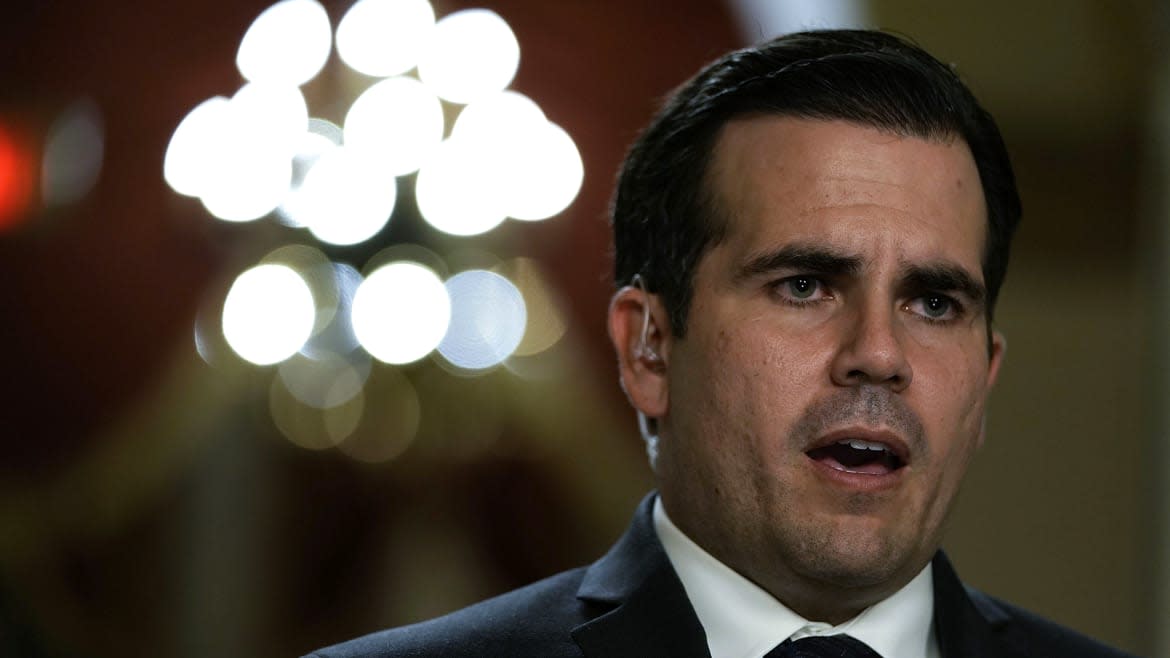Puerto Rico Governor Ricardo Rossello Announces He Will Not Seek Re-Election Amid Mounting Protests

Puerto Rico’s embattled governor, Ricardo Rosselló, announced Sunday that he will not seek reelection in 2020 and will step down as the president of the New Progressive Party, but will serve out the remainder of his term.
The move comes as Rosselló is facing public outrage over private online chat messages leaked on July 13. The 889 pages of obscenity-laced messages show the governor and his top aides—all male—allegedly making homophobic, misogynistic, and sexist comments against opponents and critics, as well as mocking victims of Hurricane Maria.
“In spite of everything, I recognize that apologizing isn’t enough, that only my work will help restore confidence ...” Rosselló said in a resignation video posted to Facebook. “Facing that scenario, I announce to you that I will not seek re-election next year.” He added that he is looking forward to facing the impeachment process, whose initial stages have already begun.
The announcement did not appear to satisfy the growing number of Puerto Ricans calling for his immediate resignation, as a deluge of angry messages was posted in response to the governor’s Facebook video.
Hundreds of thousands of Puerto Ricans have been demonstrating outside Rosselló’s official residence in colonial Old San Juan over the past week. The protests are expected to culminate at a larger protest on a major highway leading to San Juan this Monday.
Puerto Rican celebrities, including the singer Ricky Martin and playwright Lin-Manuel Miranda, as well as Democratic presidential candidates, have all sided with protesters calling for Rosselló’s resignation.
The political unrest comes as Puerto Rico continues to struggle to recover from the devastation wrought by Hurricane Maria, which hit the island nearly two years ago. It is estimated that about 4,645 people died as a result of the hurricane.
Many have criticized the federal government, including FEMA and the Trump administration, for a slow and inadequate response to the natural disaster. As a U.S. territory, Puerto Rico’s 3 million American citizens do not have full representation in Congress and cannot vote for president.
FEMA has since admitted that it created a “deficit of commodities” by moving supplies from Puerto Rico to the U.S. Virgin Islands following Hurricane Irma, which affected at least nine U.S. states.
Which Was Worse for Puerto Rico, Hurricane Maria or Hurricane Donald?
Got a tip? Send it to The Daily Beast here
Get our top stories in your inbox every day. Sign up now!
Daily Beast Membership: Beast Inside goes deeper on the stories that matter to you. Learn more.

